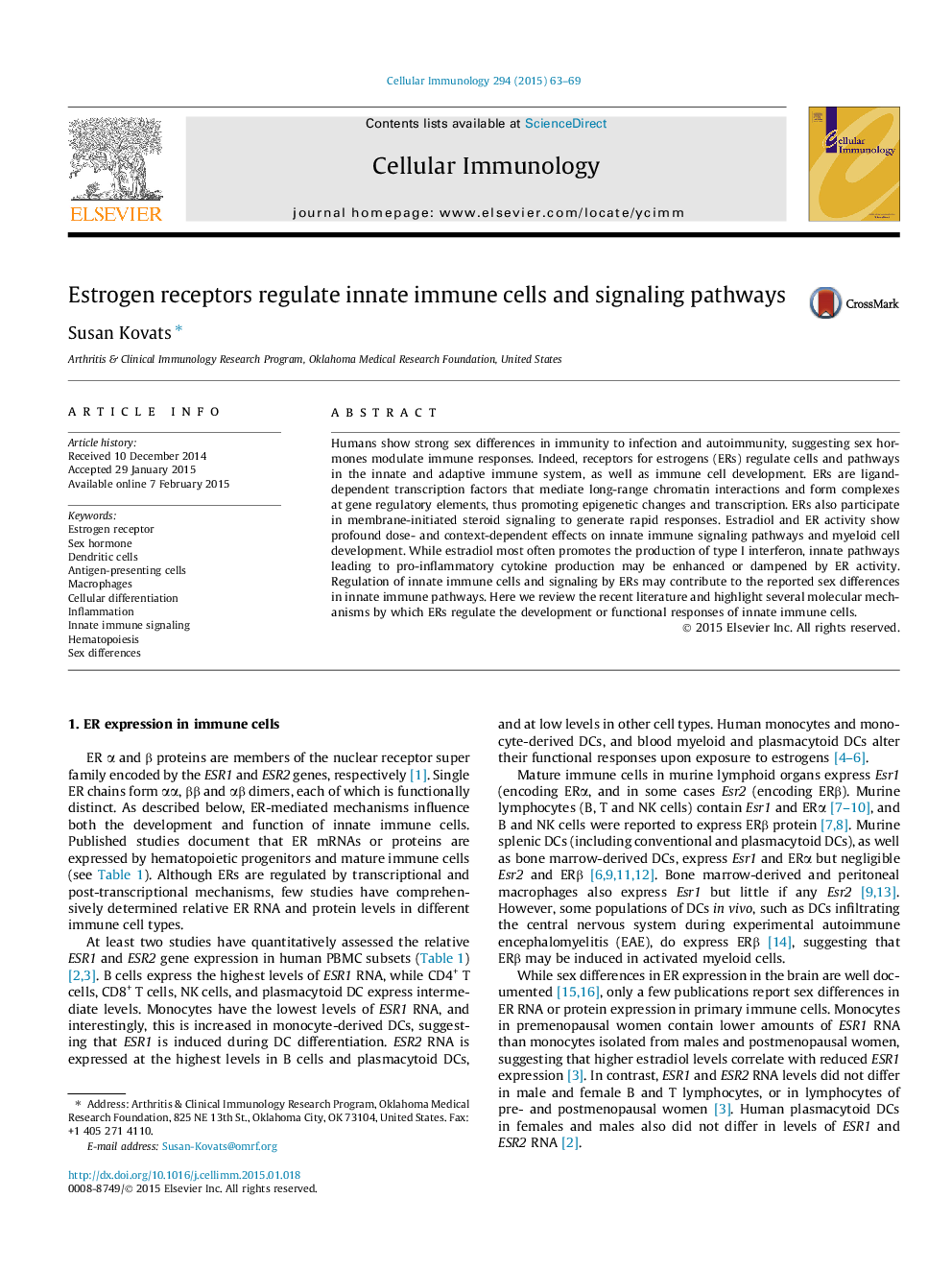| Article ID | Journal | Published Year | Pages | File Type |
|---|---|---|---|---|
| 2166963 | Cellular Immunology | 2015 | 7 Pages |
Humans show strong sex differences in immunity to infection and autoimmunity, suggesting sex hormones modulate immune responses. Indeed, receptors for estrogens (ERs) regulate cells and pathways in the innate and adaptive immune system, as well as immune cell development. ERs are ligand-dependent transcription factors that mediate long-range chromatin interactions and form complexes at gene regulatory elements, thus promoting epigenetic changes and transcription. ERs also participate in membrane-initiated steroid signaling to generate rapid responses. Estradiol and ER activity show profound dose- and context-dependent effects on innate immune signaling pathways and myeloid cell development. While estradiol most often promotes the production of type I interferon, innate pathways leading to pro-inflammatory cytokine production may be enhanced or dampened by ER activity. Regulation of innate immune cells and signaling by ERs may contribute to the reported sex differences in innate immune pathways. Here we review the recent literature and highlight several molecular mechanisms by which ERs regulate the development or functional responses of innate immune cells.
